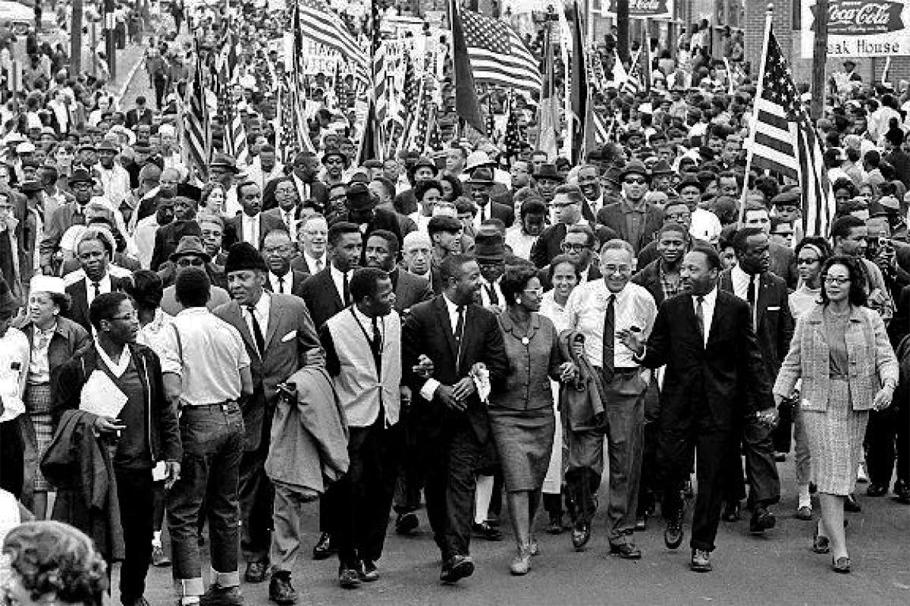Just as an obituary sums up a person’s whole life in a few sentences, time compresses history into headlines.
The British were oppressive, so American colonists threw off the yoke and created the United States of America.
Hitler, Mussolini and the emperor of Japan wanted to control the world, but the Allied powers put an end to their nefarious ways.
White Americans, especially in the South and overwhelmingly in Mississippi, were racists until the Civil Rights Movement came along and made everybody equal.
Wait. Is that last one right?
Let’s see if it can be worded a little more precisely.
Let’s resist the temptation to overly condense.
The Declaration of Independence came 281 years after European settlement of the New World began. Lots happened.
And certainly conquering of Hitler, Mussolini and Hirohito didn’t eliminate evil from the planet.
Just as certainly the Civil Rights Movement did not cleanse the nation of racism.
With 50th anniversaries of so many events of that movement, including the whopper remembrance of the march at Selma, Alabama, there’s cause (and opportunity) to dig deeper.
Try this as a more accurate summary:
Jim Crow laws institutionalized racism by keeping black Americans from voting, by keeping schools, hotels and public transit racially segregated and by allowing racial discrimination in housing and employment until the Civil Rights Movement resulted in federal laws and court rulings overcoming such official acts and business practices.
That’s better.
It makes clear that the movement’s main target was the law. That’s where it succeeded.
Changing individual hearts and minds was a side benefit. It was good that so many who thought segregation was OK thought things through and came to a different understanding, as Dr. Martin Luther King Jr. advocated. It was good that so many “saw the light” as a result of atrocities such as the unprovoked beatings and bloodshed at Selma.
Not a lot of people who were in that march are still around. U.S. Rep. John Lewis, D-Ga., is. He sustained a skull fracture. In a story about the anniversary events, he was asked about linkage between the violence at Selma in 1965 and the violence that followed the killing of Michael Brown in Ferguson, Mo., last year. He told The Associated Press there was one distinction: “The only thing that is so different (is that) today, I don’t think many of the young people have a deep understanding of the ways of nonviolent direct action.”
Andrew Young, in the same story, elaborated: “There was nothing magic about Selma,” said the aide to Dr. King who went on to be ambassador to the United Nations and mayor of Atlanta. “Selma just gave us the right to vote. But if you don’t vote, and don’t take advantage of that right, you’re living in a pre-Selma age.”
If you didn’t get Young’s point, read his quote again. It’s profound. It asks, “What has been done with the freedom’s won?”
The sad answer? In Ferguson where two-thirds of residents are black, voter turnout in the mayoral election three months after Brown was killed, according to the AP story, was 12.2 percent. About one of 10 people voted.
Selma meant nothing — zero, zip nada — to them.
Again, the Civil Rights Movement resulted in new legal barriers and legal consequences for those engaging in racism, but did nothing to end it. People, regardless of age or color, are as individually free in 2015 as they were in 1965 to adopt and hold racist beliefs.
It is equally accurate to say that practicing the full rights that come with American citizenship is as optional as it ever was, except for a wider array of Americans. People choose whether to work for and seek education, choose whether to create and sustain families and choose whether to work constructively to improve their communities.
For minorities, the Civil Rights Movement removed legal impediments, those artifices that said it was OK to open doors to some people and not to others. But to paraphrase Young, the decision to walk through, just like the decision to engage in racism, is still up to the individual.
History should not lead us to believe the Civil Rights Movement had the purpose or the effect of any direct or forced change to anything other than the law.
The Voting Rights Act was passed by Congress and signed by President Lyndon Johnson a mere five months after the bloodshed near the Edmund Pettus Bridge. But absent constructive, personal use of the freedoms won, the anniversary is meaningless.
Charlie Mitchell is a Mississippi journalist and assistant dean of the Meek School of Journalism and New Media. Write to him at cmitchell43@yahoo.com.

